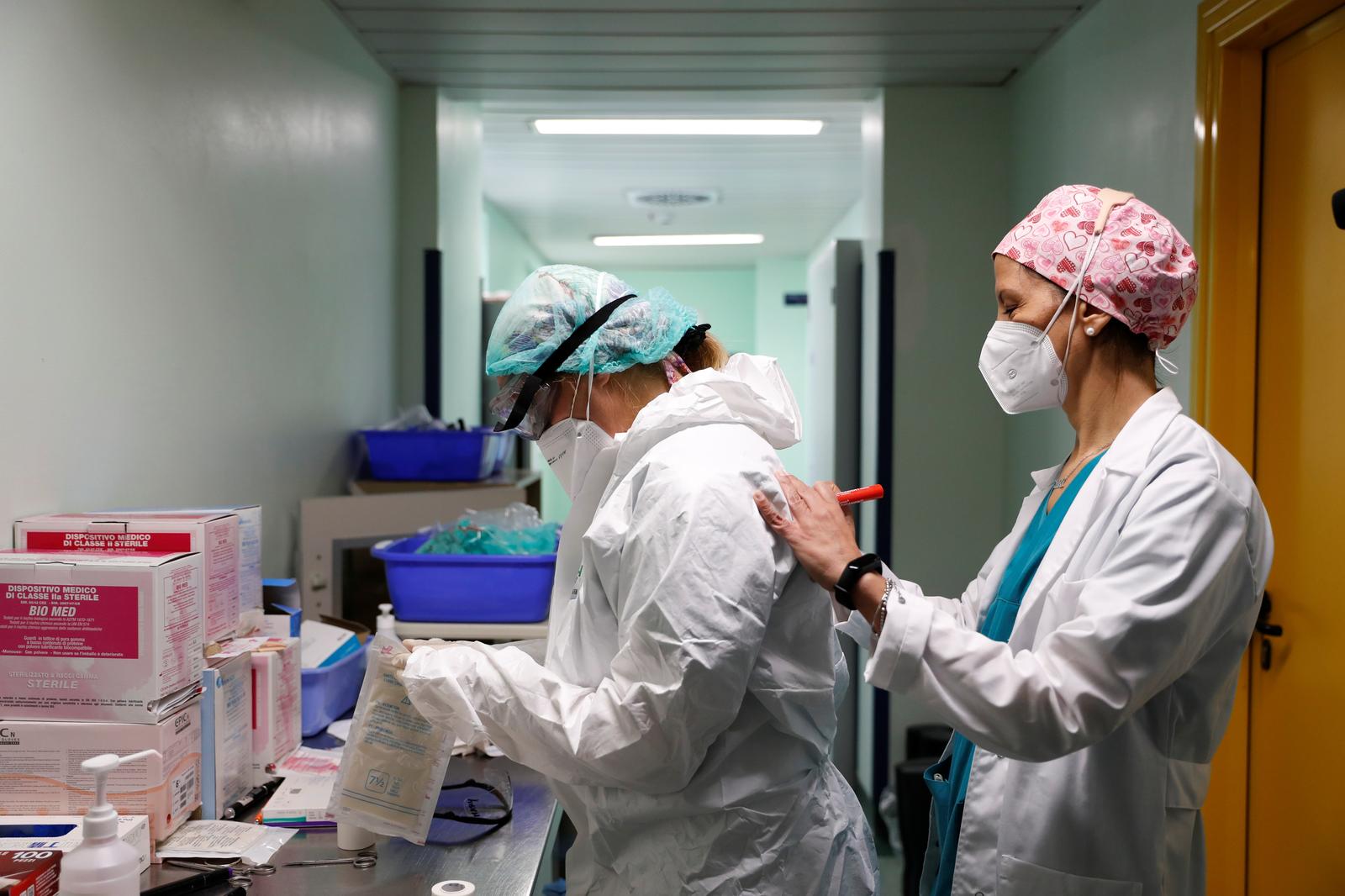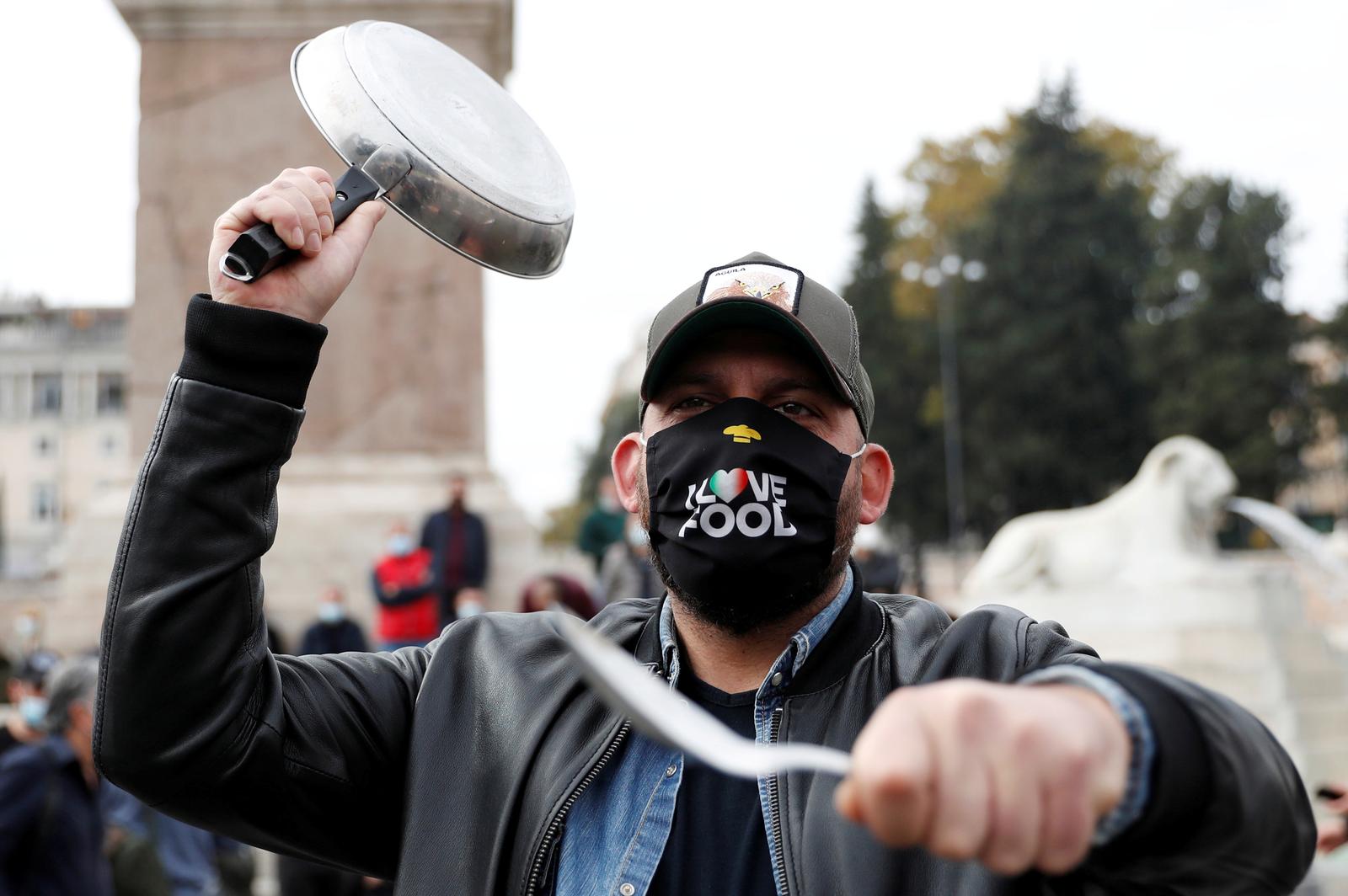ROME – One month ago, the World Health Organization posted a video praising Italians’ “strong and effective response” to the coronavirus pandemic.
At the time, Italy had one of the lowest infection rates in the Western world and appeared to have learnt the lessons of the first wave, which killed more people than anywhere else in Europe except Britain.
Now it appears that Italy, ahead of the rest of Europe when COVID-19 arrived, was simply behind the curve when it roared back as summer ended.
New cases are rising at record rates, hitting 31,758 on Oct. 31 against around 2,500 at the start of the month, while deaths are up tenfold to more than 200 a day.
To be sure, many northern hemisphere countries are also facing a coronavirus resurgence.
But just as Italy became a symbol of the perils of the virus, so its inability to protect against a second wave has underscored Europe’s failure to use the summer lull to bolster its defences, notably in tracing and testing.
“It is a monumental debacle. The fact that Italy is in the same situation as other countries in Europe is no comfort to me,” virologist Andrea Crisanti told Reuters.
“We had five months to strengthen our surveillance, tracking and prevention systems and instead we are heading towards a new lockdown.”
The government says it wants to avoid another national lockdown and denies failing to anticipate a second wave.
“There may have been mistakes, you can always do better but we have not underestimated the situation. We have worked on all fronts,” Prime Minister Giuseppe Conte said last week.
Crisanti, who has become a celebrity with his dogged demands for more testing, published a letter with nine colleagues on Friday listing what they said were the government’s failings, along with recommendations.
One shortcoming, they said, was the system Italy had adopted to trace those who had contact with COVID sufferers and make sure they were tested.
|
|
| People protest against the government's measures to combat the coronavirus disease (COVID-19) in Turin, Italy, November 1, 2020. Photo: Reuters |
In June, the government employed 9,000 people for this. That has risen to just 9,200, a third of the number Germany employs. The state placed adverts last week to recruit another 2,000.
“We warned the authorities from the very beginning that we would have needed much more people, and people professionally trained, for tracing COVID-19,” said Miria De Santis, head of the national association of health assistants.
“I think the authorities overlooked the risk of the second wave,” she told Reuters.
Privacy problems
Franco Locatelli, a leading member of the scientific committee that advises the government, denies the state lowered its guard, but acknowledges that the tracing system has been overwhelmed.
“COVID-19 tracking and testing is absolutely crucial but beyond a certain number of infections, it cracks. I meet 20, 30 people every day, the incubation period of the disease is 2, 3 days. With the current numbers, it means 700,000 people must be traced (each day). No matter how much you strengthen the system, you can’t do it,” he said last week.
Another element was meant to be a smartphone app to track infections. As in most of Europe, Italy’s app has not performed well.
Since its launch five months ago, 9.5 million people have downloaded it, about 16% of the population.
So far, 2,192 users have registered as having coronavirus – 20 times fewer than expected given the national infection rate.
Italy and other European countries have put strong emphasis on protecting app users’ privacy, with the software registering when people come close to each other, but not where they are.
“The task force of experts set up by the Italian government recommended from the start using software able to geolocate detections, because it was reckoned essential to know, for instance, if someone got infected in a nursing home,” said Carlo Alberto Carnevale Maffe, a professor at Milan’s Bocconi University and a government adviser on tracing.
|
|
| A man holds a frying pan as Italian restaurant and bar workers gather in Piazza del Popolo to protest against the government's coronavirus disease (COVID-19) rules that they have to close everyday by 6 p.m., in Rome, Italy November 2, 2020. Photo: Reuters |
China and South Korea did this and have beaten back the virus. Italy chose the less intrusive route.
“Europe has not learnt the lesson coming from the East, that public health must be addressed collectively and not individually,” Maffe told Reuters.
'Navigating blind'
In another failing, local regions, which have autonomy over health care, have yet to set up a comprehensive testing system.
Around 200,000 swabs are being carried out daily, much more than in March, but Crisanti, who is professor of microbiology at Padua University, believes 400,000 are needed. He said he wrote to the government in August urging it to ramp up capacity, but got no reply.
The Health Ministry did not respond to a request for comment.
The lack of data has fuelled public anger as the government imposes restrictions by shutting gyms, pools, theatres and cinemas, and ordering bars and restaurants to close at 6 p.m.
Business owners have challenged authorities to produce evidence that these are activities where infections are raging.
For the first time there have been clashes in cities across Italy between police and people protesting against the curbs.
“We are navigating blind because no one thought to turn on the radar. The radar is the data ... which, if used wisely, should have been telling us where infections are happening,” said Antonella Viola, an immunologist at Padua University.




















































